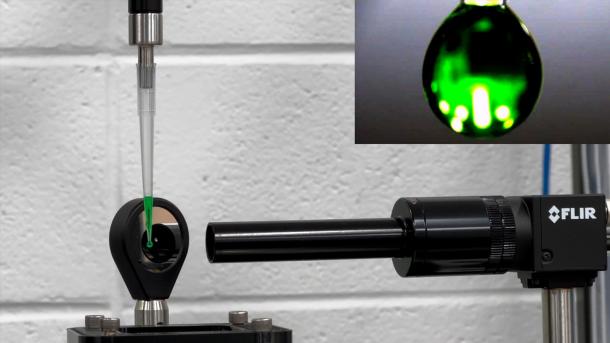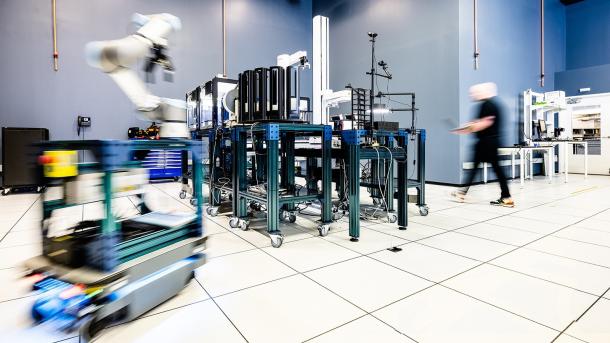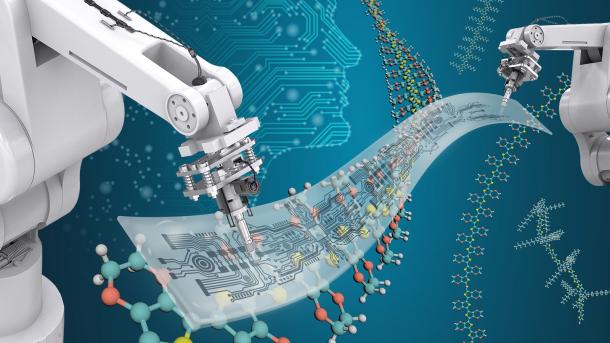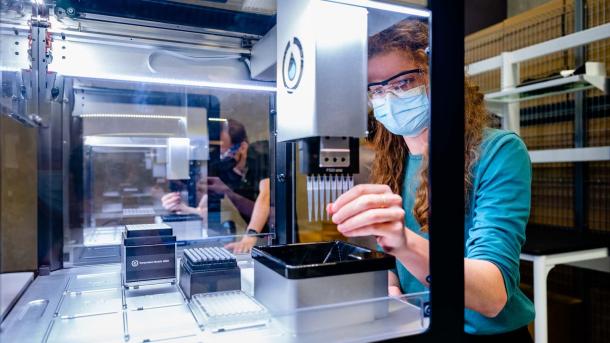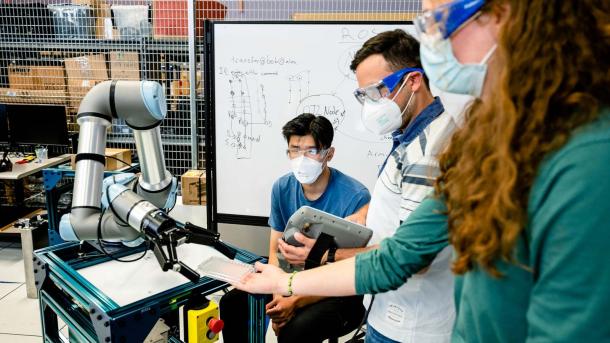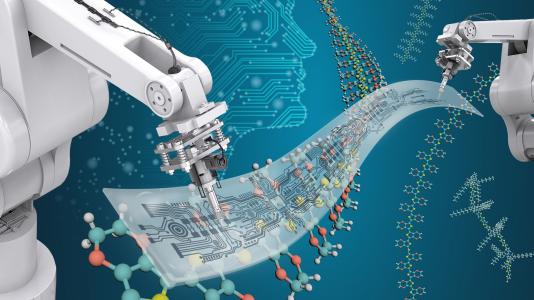Argonne National Laboratory is transforming the future of laboratory science with our exploration into autonomous discovery. This initiative centers on the idea that self-driving labs can streamline processes, save resources, and accelerate the pace of discovery.
Our program harnesses the power of artificial intelligence — including robotics, machine learning, simulations and more — to aid in the planning, execution and analysis of scientific experiments.
Our Goals
- Automate the laboratory. We can cover lab benchtops with fixed-in-place robots.
- Automate the scientist. We can incorporate mobile, “human-like” robots in lab spaces.
- Automate the scientific process. AI can run hundreds of experiments, evaluate results, identify patterns and determine next steps.
